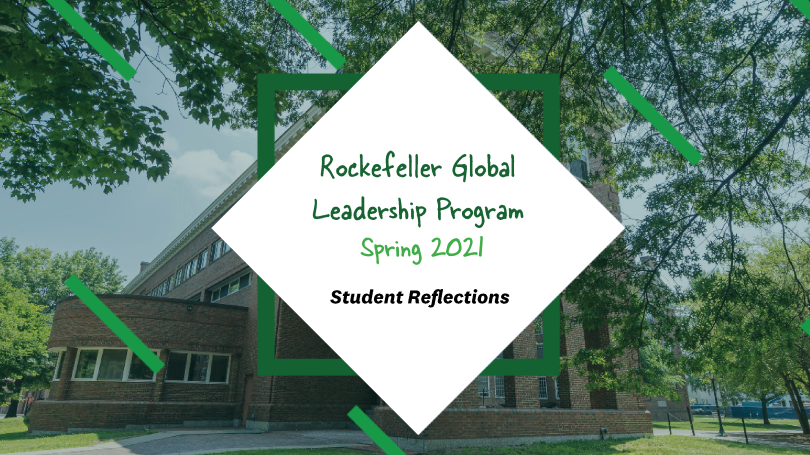
- Public Policy
- Leadership
- Funding
- News & Events
- About the Center
Back to Top Nav
Back to Top Nav
Back to Top Nav
Back to Top Nav
In my day-to-day activities, culture tends to be an afterthought. Even when I am communicating with folks who may speak a different native language, reside in a different country, or prescribe to different norms, my goal for the interaction (i.e., a friendly chat, group project, etc.) always overwhelms a recognition of cultural differences. RGLP shaped my perspective on these ordinary exchanges by bringing culture and intercultural differences to the center of attention. This conscious focus on culture is quite significant: cultural differences are always influencing interactions, so refusing to acknowledge the importance of culture is a mistake.
The Journey to Sharahad Simulation was when this understanding “clicked” for me. I found the simulation so helpful because the over exaggerated cultural differences quickly elevated culture to the forefront of the business discussion. Normally, I might gloss over a cultural difference and remain hyper focused on the goal of an exchange. However, in the Sharahad Simulation it was impossible to leave cultural differences unaddressed. Of course, this simulation was more extreme than a real-life encounter, but many of the Sharahad features (paralinguistics, conversation norms, and views on the future) reflect genuine cultural differences throughout society.
This simulation demonstrated the importance of making culture a conscious consideration rather than an afterthought. In intercultural interactions, cultural differences can sometimes present a barrier to arriving at a mutually shared goal. One approach relies on downplaying or refusing to acknowledge these differences. This approach, however, is likely to fail and just leave all parties frustrated. Instead, a better route entails acknowledging, adapting, and accommodating cultural differences.
This emphasis on adaptation and accommodation highlights two key themes I have taken away from RGLP. The first is tolerance of ambiguity. Throughout my life, I will inevitably encounter unique and unfamiliar situations. In these novel scenarios, embracing uncomfortability will allow me to succeed, regardless of any intercultural differences. Second, and relatedly, RGLP has demonstrated the importance of intercultural empathy. Sometimes cultural differences can come across as rude or inconsiderate, but this is rarely the intent. Therefore, rather than jumping to conclusions, everyone will be better served to listen and try to relate with others when faced with intercultural challenges.
Written by Nicholas Mancini, a member of the Spring 2021 Cohort of the Rockefeller Global Leadership Program.